
Playway PreSchool
"Children who attend high-quality preschool enter kindergarten with better pre-reading skills, richer vocabularies, and stronger basic math skills than those who do not,"
W. Steven Barnett, PhD. Director, NIEER
(National Institute for Early Education)
Why is Pre-School Important?
Research shows that a child's brain development peaks at the age of 3. With quality preschool education they become exposed to numbers, letters, and shapes, singing, playing with toys. And, more important, they learn how to socialise -- get along with other children, hare, and contribute to circle time. Pre-school is critical for the physical, emotional and social development of the child. Our objective at the MHMS Pre-school is to get your child ready to learn on the first day of Kindergarten. To ensure school readiness, here are a few developmental milestones that we look at. These are few activities that the child should be able to do at the age of 2, 3 and 4.
Age 2
Walk Alone, Jump & Run
Kick a Ball
Scribble with Crayon
Imitate Others
Age 3
Tell Stories in 2-3 Sentences
Can name a Friend
Throw a ball Overhand
Copy a Circle
Age 4
Know First & Last Name
Copy a Cross
Eat by Themselves
Sing a Song from Memory
Pre-School Curriculum
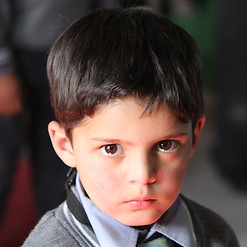
Motor Skills
These activities incorporate use of body muscles, body movement and hand eye coordination. Activities include touching, grasping, cutting, pasting, moulding, picking objects, jumping, posture control and much more.

Pre-Reading Skills
To help the child identify alphabets and their phonics. Educational and Illustrative charts, block games and letters are used to make the child identify and speak the alphabet or the object shown.

Pre-Reading Skills
These activities are designed to help the child prepare for holding a pencil and balancing note books. Kids are given colourful worksheets and are instructed to work on them by the teacher.
Pre-School Curriculum

Motor Skills
These activities incorporate use of body muscles, body movement and hand eye coordination. Activities include touching, grasping, cutting, pasting, moulding, picking objects, jumping, posture control and much more

IMAGINATION SKILLS
Teachers conduct storytelling for the children through hand movement and gestures to encourage the kids to visualise & Imagine scenes and learn free flowing conversations. Puppet shows conducted by our teachers are the most popular at our school
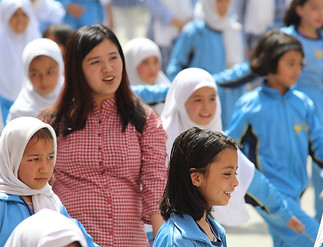
DANCING AND SINGING
Children are taught to dance and sing rhymes. Our teachers usually join along with the students and dance to the tunes of a song playing on the CD player or computer Such activities help the child balance and coordinate their body movements

PRE-READING SKILLS
To help the child identify alpha bets and their phonics. Educational and Illustrative charts, block games and letters are used to make the child identify and speak the alphabet or the object shown
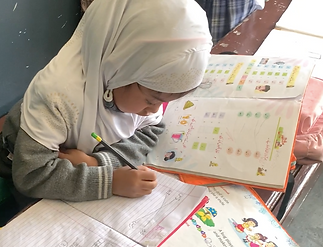
PRE-WRITING SKILLS
These activities are designed to help the child prepare for holding a pencil and balancing note books. Kids are given colourful worksheets and are instructed to work on them by the teacher
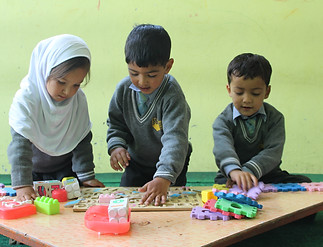
PRE-MATH SKILLS
Educational charts, illustrations in printed preschool books and blocks numbers are used by the teachers to help the children identify numbers and its value

ARTS AND CRAFTS
Children are taught to do basic drawing, fill colours, folding (basic origami) and cutting paper, pasting activities. Along with creative instigation, these activities also contribute to the motor skills of the child
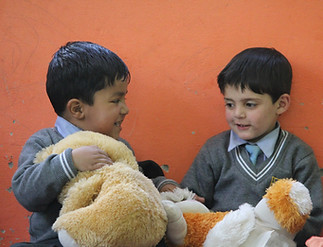
GAMES AND FREE PLAY
During these sessions the children are allowed to play freely without any barriers in our play room. They are given toys and other gym equipment according to their age and height to strengthen them physically and also teach them to share and socialise.

OTHER ACTIVITIES
Educational shows on LCD Projector to learn about animal names, colours, shapes. body parts, fruits and vegetables
